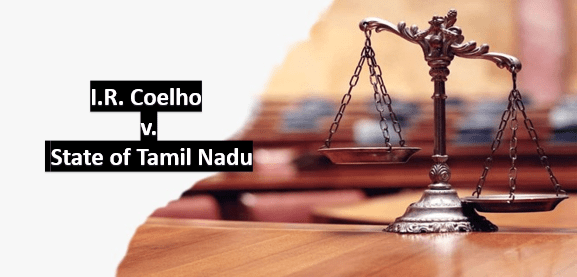
Case Name: I.R. Coelho v. State of Tamil Nadu
Civil Appeal No. 4549
Date of Judgment: March 11, 2007
Background:
The case primarily dealt with the issue of whether laws enacted by Parliament that violated fundamental rights could be shielded from judicial review under the doctrine of basic structure.
Brief Summary:
The case originated from a constitutional challenge to the 29th and 31st constitutional amendments, which sought to nullify judicial review of land reform laws enacted by state governments. The amendments sought to amend Article 31B of the Indian Constitution to include land reform laws within the scope of the Ninth Schedule, which provided immunity from judicial review.
The petitioner, I.R. Coelho, challenged the amendments on the grounds that they violated various fundamental rights guaranteed under Part III of the Indian Constitution, such as the right to equality, right to property, and right to judicial remedy. The case raised important questions regarding the power of Parliament to amend the Constitution and the scope of judicial review.
Key Findings:
The Supreme Court, in a 7-6 majority decision, held that laws included in the Ninth Schedule would not have blanket immunity from judicial review if they violated the basic structure of the Constitution. The court reiterated the doctrine of basic structure, which states that certain fundamental features of the Constitution are beyond the amending power of Parliament.
The judgment clarified that amendments that violated core principles of the Constitution, such as the principles of federalism, secularism, and democracy, could be struck down by the courts. The court also held that the Ninth Schedule was not a “no-go area” for judicial review, and laws placed in it would be subject to scrutiny if they violated fundamental rights.
Significance:
The I.R. Coelho case reaffirmed the doctrine of basic structure and the power of judicial review in safeguarding fundamental rights. It clarified that laws included in the Ninth Schedule were not immune from constitutional scrutiny if they violated the basic structure. This judgment significantly strengthened the role of the judiciary in upholding the Constitution’s principles and ensuring the protection of fundamental rights in India.
It’s important to note that this is a brief summary of the case, and for a more comprehensive understanding, it’s recommended to refer to the complete judgment or consult legal experts familiar with the case.
This article is written by Vyakhya Baweja of Amity Law School, Noida.




0 Comments